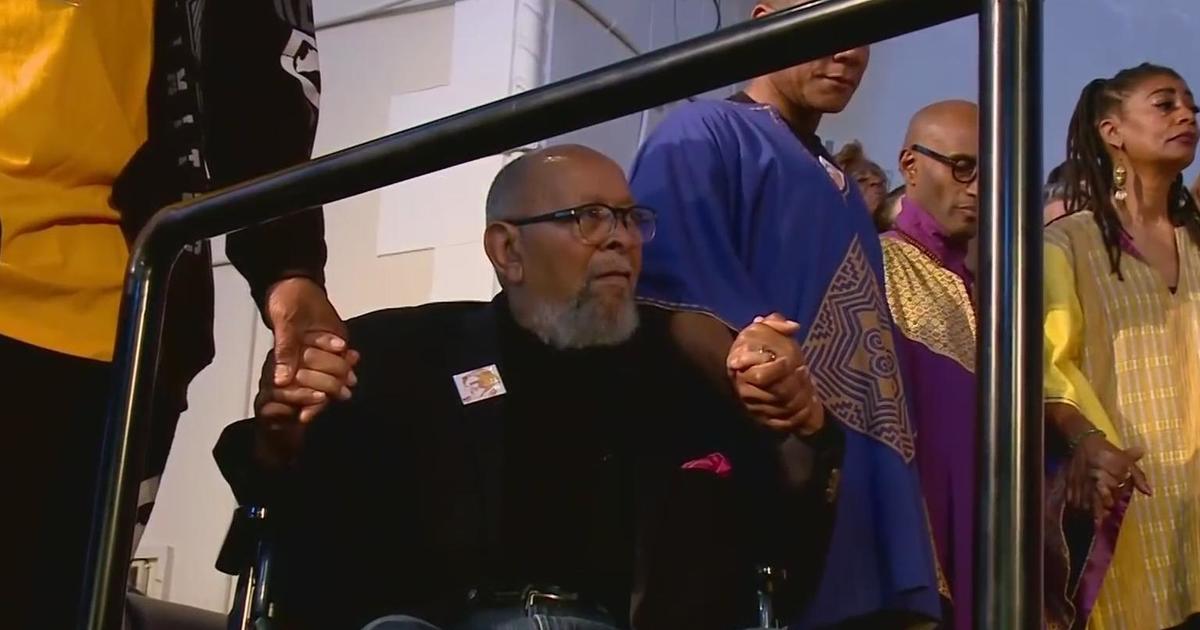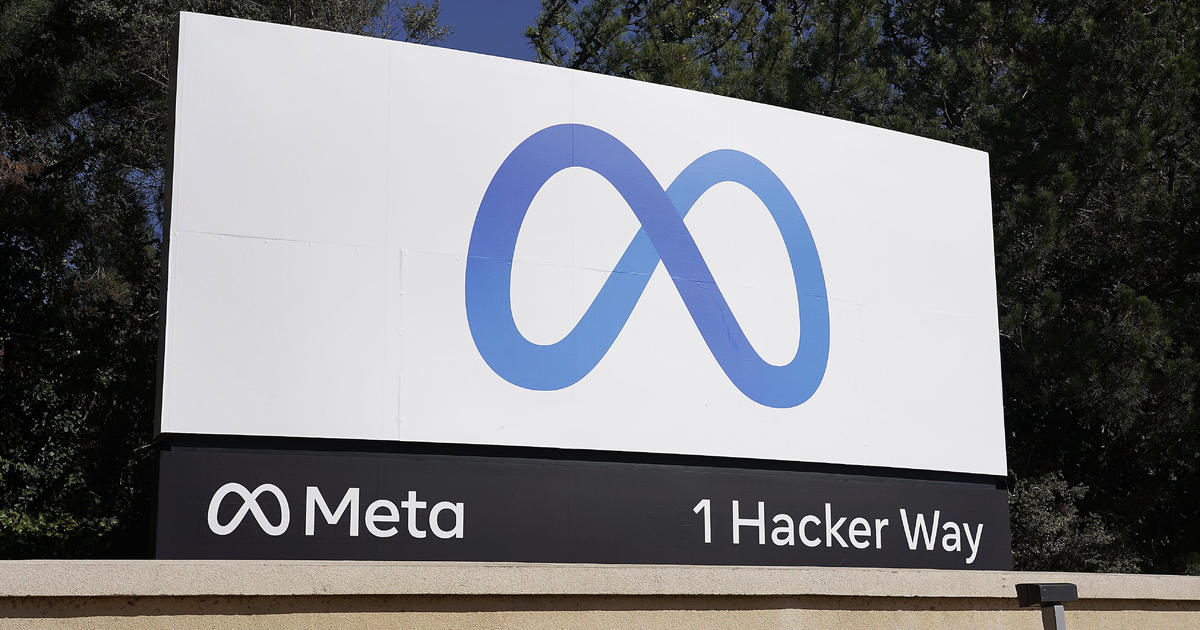Pope's Resignation For 'The Good Of The Church' Says SF Archbishop
SAN FRANCISCO (CBS / AP) -- Declaring that he lacks the strength to do his job, Pope Benedict XVI announced Monday he will resign Feb. 28 - becoming the first pontiff to step down in 600 years. His decision sets the stage for a mid-March conclave to elect a new leader for a Roman Catholic Church in deep turmoil.
The 85-year-old pope called his choice "a decision of great importance for the life of the church." He dropped the bombshell in Latin during a meeting of Vatican cardinals, surprising some even though he had made clear previously that he would step down if he became too old or infirm to carry on.
"Those of us who know him and who have watched his whole life unfold in service to God, can see that that this decision to step down was motivated by his own discernment of what best serves the good of the Church," San Francisco Archbishop Salvatore Cordileone said in a statement e-mailed to CBS San Francisco. "I will pray for him with great filial affection, and ask that we all hold him in prayer at this time. May God bless him and may God guide the College of Cardinals as they choose his successor."
The Vatican will hold a conclave before Easter to elect a new pope, and Benedict will hold great sway over the choice of his successor -- though he will not himself vote. He has already hand-picked the bulk of the College of Cardinals - the princes of the church who will elect the next pope - to guarantee his conservative legacy and ensure an orthodox future for the church.
Among those participating in the selection process will be Cardinal William Levada, the former Archbishop of San Francisco. The 75-year-old Levada was the highest-ranking American in the Vatican — a top adviser to Pope Benedict XVI as Prefect of the Congregation for the Doctrine of the Faith, until he resigned resigned last summer.
There are several papal contenders in the wings (Levada is not one of them, observers noted), but no obvious front-runner - the same situation when Benedict was elected pontiff in 2005 after the death of Pope John Paul II.
Related Coverage:
California Cardinal Tainted In Abuse Scandal To Vote On Benedict XVI Successor
The Vatican stressed that no specific medical condition prompted Benedict's decision, that he remained fully lucid and took his decision independently.
It has been obvious to all that the pope has slowed down significantly in recent years, cutting back his foreign travel and limiting his audiences. He now goes to and from the altar in St. Peter's Basilica on a moving platform to spare him the long walk down the aisle. Occasionally he uses a cane.
Bay Area Catholics Wake Up to News that Pope Benedict Plans to Resign
Benedict emphasized that carrying out the duties of being pope requires "both strength of mind and body."
"After having repeatedly examined my conscience before God, I have come to the certainty that my strengths due to an advanced age are no longer suited" to the demands of being the pope, he told the cardinals.
Popes are allowed to resign but church law says the decision must be "freely made and properly manifested." Still, only a handful have done it.
The last pope to resign was Pope Gregory XII, who stepped down in 1415 in a deal to end the Great Western Schism, a dispute among competing papal claimants. The most famous resignation was Pope Celestine V in 1294; Dante placed him in hell for it.
On Monday, Benedict said he would serve the church for the remainder of his days "through a life dedicated to prayer." The Vatican said immediately after his resignation, which takes effect at 8 p.m. Feb. 28, Benedict would go to Castel Gandolfo, the papal summer retreat south of Rome, and then would live in a cloistered monastery.
During his tenure, Benedict charted a very conservative course for the church, trying to reawaken Christianity in Europe where it had fallen by the wayside and return the church to its traditional roots, which he felt had been betrayed by an incorrect interpretation of the modernizing reforms of the Second Vatican Council.
His efforts though, were overshadowed by a worldwide clerical sex abuse scandal, communication gaffes that outraged Jews and Muslims alike and, more recently, a scandal over leaked documents by his own butler. Many of his stated priorities as pope also fell short: he failed to establish relations with China, heal the schism and reunite with the Orthodox Church, or reconcile with a group of breakaway, traditionalist Catholics.
Still, most Vatican watchers agreed with the observation of San Francisco's Archbishop Cordileone and saw Benedict's decision as the best thing to do for the church given his diminished capacities.
All cardinals under age 80 are allowed to vote in the conclave, the secret meeting held in the Sistine Chapel where cardinals cast ballots to elect a new pope. As per tradition, the ballots are burned after each voting round; black smoke that snakes out of the chimney means no pope has been chosen, while white smoke means a pope has been elected.
There are currently 118 cardinals under age 80 and thus eligible to vote, 67 of whom were appointed by Benedict. However, four of them will turn 80 before the end of March. Depending on the date of the conclave, they may or may not be allowed to vote.
Benedict in 2007 passed a decree requiring a two-thirds majority to elect a pope, changing the rules established by John Paul who had decided that the voting could shift to a simple majority after about 12 days of inconclusive voting. Benedict did so to prevent cardinals from merely holding out until the 12 days had passed to push through a candidate who only had only a slim majority.
Contenders to be his successor include Cardinal Angelo Scola, archbishop of Milan, Schoenborn, the archbishop of Vienna, and Cardinal Marc Ouellet, the Canadian head of the Vatican's office for bishops.
Longshots include Cardinal Timothy Dolan of New York. Although Dolan is popular and backs the pope's conservative line, being from such a world super power will probably not count in his favor. That might also rule out Cardinal Raymond Burke, an arch-conservative and the Vatican's top judge, even if he is known and respected by most Vatican cardinals.
Given half of the world's Catholics live in the global south, there will once again be arguments for a pope to come from the developing world.
Cardinal Antonio Tagle, the archbishop of Manila, has impressed many Vatican watchers, but at 56 and having only been named a cardinal last year, he is considered too young.
Cardinal Peter Kodwo Appiah Turkson of Ghana is one of the highest-ranking African cardinals at the Vatican, currently heading the Vatican's office for justice and peace, but he's something of a wild card.
There are several "papabile" in Latin America, though the most well-known, Cardinal Oscar Andres Rodriguez Maradiaga of Honduras, is considered far too liberal to be elected by such a conservative College of Cardinals.
Whoever it is, he will face a church in turmoil: The sex abuse scandal has driven away thousands of people, particularly in Europe, from the church. Rival churches, particularly evangelical Pentecostal groups in the developing world, pose new competition. And as the pope himself has long lamented, many people in an increasingly secular world simply believe they don't need God.
The timing of Benedict's announcement was significant: Lent begins this week on Ash Wednesday, the most solemn period on the church's calendar that culminates with Holy Week and Easter on March 31. It is also the period in which the world witnessed the final days of John Paul's papacy in 2005.
The timing means that there will be a very big spotlight cast on Cardinal Gianfranco Ravasi, the Italian head of the Vatican's culture office who has long been on the list of "papabile." Benedict selected him to preside over the Vatican's spiritual exercises during Lent.
By Easter Sunday the Catholic Church will have a new leader, a potent symbol of rebirth in the church that echoes the resurrection of Christ celebrated on Easter.
Benedict was born April 16, 1927 in Marktl Am Inn, in Bavaria, but his father, a policeman, moved frequently and the family left when he was 2.
In his memoirs, Benedict dealt what could have been a source of controversy had it been kept secret - that he was enlisted in the Nazi youth movement against his will when he was 14 in 1941, when membership was compulsory. He said he was soon let out because of his studies for the priesthood. Two years later he was drafted into a Nazi anti-aircraft unit as a helper. He deserted the German army in April 1945, the waning days of the war.
He called it prophetic that a German followed a Polish pope - with both men coming from such different sides of World War II.
Benedict was ordained, along with his brother, in 1951. After spending several years teaching theology in Germany, he was appointed bishop of Munich in 1977 and elevated to cardinal three months later by Pope Paul VI.
John Paul II named him leader of the Congregation for the Doctrine of the Faith in 1981 and he took up his post a year later. Following John Paul's death in 2005, he was elected pope April 19 in one of the fastest conclaves in history, just about 24 hours after the voting began.
(Copyright 2013 by CBS San Francisco. All Rights Reserved. This material may not be published, broadcast, rewritten, or redistributed.)



